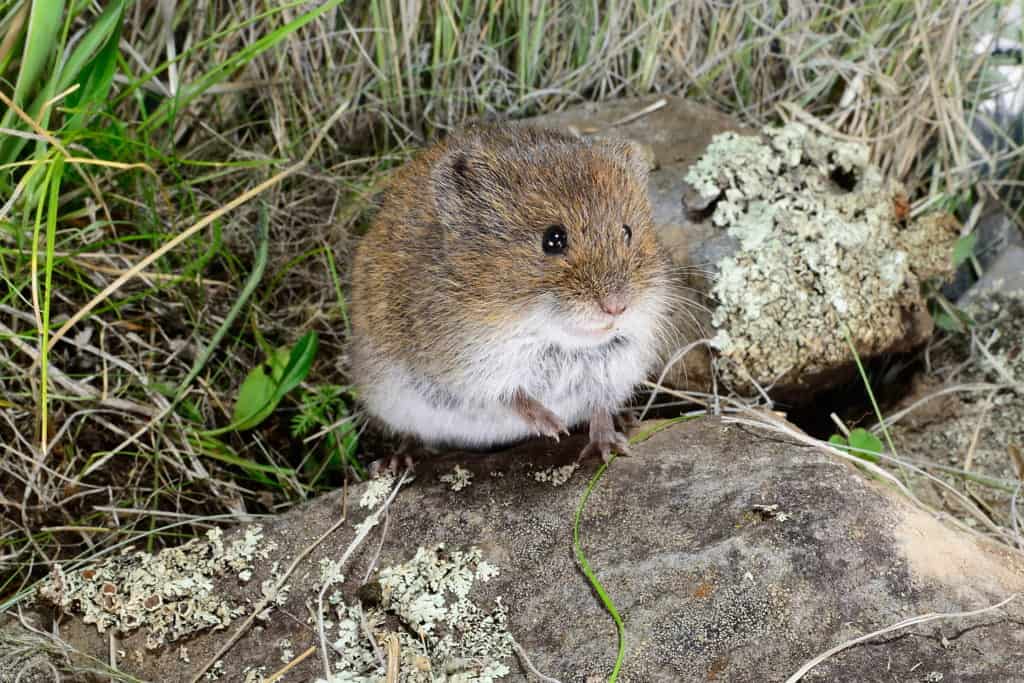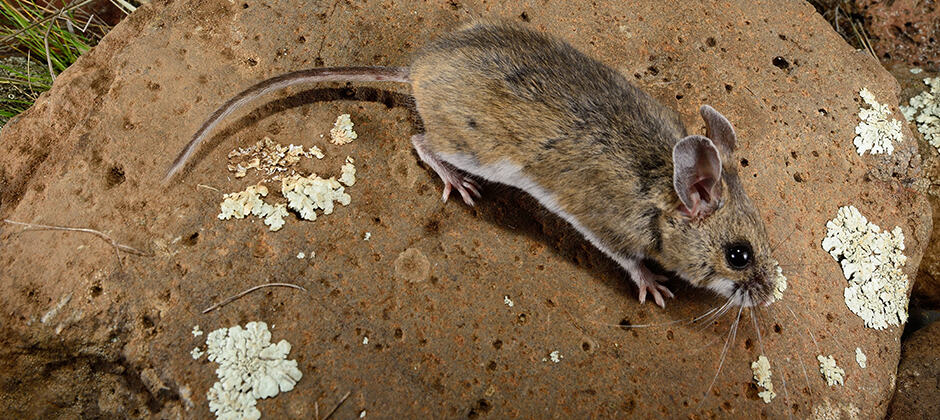Share this article
JWM: Cattle Grazing worse than wildfires for small mountain meadow mammals
Heavy livestock grazing causes more damage to small mammal populations living in montane meadows in the Southwest than wildfires, researchers found.
Ecosystems across the region are experiencing an uptick in wildfires, due in part to past forest management and climate change. But cattle grazing allotments in mountain meadows also cause changes to the environment.
Researchers wanted to see how these two impacts affected populations of small mammals. Carol Chambers, TWS vice president and a professor of wildlife ecology at Northern Arizona University, and her co-authorslive-trapped small mammals on plots in the Apache-Sitgreaves National Forests in east-central Arizona at elevations ranging from 3,480 feet to 11,500 feet.
In the study published in The Journal of Wildlife Management,they sampled 64 unique sites for vegetation and small mammals from June to August in 2012 — right after a fire occurred in the area — and in 2013. The sites experienced different levels of burning and livestock grazing.
“We opportunistically took advantage of the fire effects,” Chambers said.
They captured 1,885 rodents of eight species. The most common small mammals were deer mice (Peromyscus maniculatus) and the Arizona montane vole (Microtus montanus arizonensis), with smaller numbers of other species such as the Navajo Mogollon vole (Microtus mogollonensis navaho) and the thirteen-lined ground squirrel (Ictidomys tridecemlineatus) — an animal of conservation concern endemic to the White Mountains, which are partially located in the Apache-Sitgreaves National Forest.

They found higher species diversity in ungrazed compared to grazed areas and higher species richness in unburned rather than burned meadows. But livestock grazing had a much greater effect on the rodent communities than wildfires did.
Chambers said this is partly because livestock grazing puts ongoing pressure on the meadows, whereas fires come and go quickly, allowing recovery for the vegetation cover that small mammals need.
The authors said that a reduction in livestock grazing would help increase the abundance of rodents in mountain meadow ecosystems and would help with species diversity.
“Fire goes through quickly and plants revegetate quickly, but if you are grazing you tend to have repeated removal, and that can have more of a long-term effect,” she said. “I think that studies consistently show that small mammals are negatively affected by livestock grazing.”
TWS members can log in to read this paper in the Journal of Wildlife Management.
Header Image: Deer mouse were the most common rodents found in mountain meadows in the Apache-Sitgreaves National Forests. ©José G. Martínez-Fonseca








